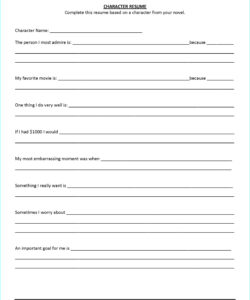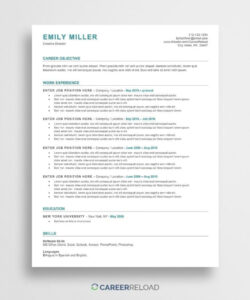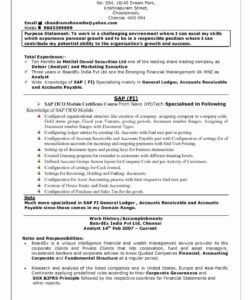Temporary jobs are a great way to gain experience and earn money while you’re looking for a permanent position. However, many people struggle with how to include these jobs on their resumes. In this article, we’ll show you how to put a temp job on a resume in a way that highlights your skills and experience.
First, it’s important to understand that temporary jobs can be just as valuable as permanent positions. They often require a high level of flexibility and adaptability, which are important skills in any workplace. Additionally, temporary jobs can provide you with a wide range of experiences and help you build your professional network.
How to Include a Temp Job on Your Resume
When it comes to including a temp job on your resume, there are a few things to keep in mind. First, you should always list the job under the “Work Experience” section of your resume. This section should be organized in reverse chronological order, with your most recent job listed first.
Next, you should include the name of the company you worked for, your job title, and the dates you worked there. If you worked for a staffing agency, you should list the agency as your employer and the company you worked for as the client.
Underneath this information, you should include a brief description of your job duties and accomplishments. Be sure to highlight any skills or experience that are relevant to the job you’re applying for.
Finally, you should include any relevant education or training you received while working in the temp job. This could include on-the-job training, certifications, or other professional development opportunities.
How to Highlight Your Temp Job Experience
While including a temp job on your resume is important, it’s also important to highlight the skills and experience you gained while working in that job. Here are a few tips for doing so:
- Focus on your accomplishments: Instead of just listing your job duties, focus on the accomplishments you achieved while working in the temp job. For example, if you worked in a customer service role, you could highlight your success in resolving customer complaints or improving customer satisfaction ratings.
- Highlight your transferable skills: Many of the skills you gained in your temp job are likely transferable to other positions. Be sure to highlight these skills on your resume, as they can make you a more attractive candidate to potential employers.
- Quantify your achievements: Whenever possible, use numbers to quantify your achievements. For example, if you worked in a sales role, you could highlight the amount of revenue you generated or the number of new clients you brought in.
- Use action verbs: When describing your job duties and accomplishments, use strong action verbs to make your resume more engaging. For example, instead of saying “Responsible for answering customer calls,” you could say “Managed a high-volume of customer calls and resolved issues in a timely manner.”
FAQs
Q: How do I list a temp job on my resume?
A: List the job under the “Work Experience” section of your resume. Include the name of the company you worked for, your job title, and the dates you worked there. Underneath this information, include a brief description of your job duties and accomplishments.
Q: Should I include temp jobs on my resume?
A: Yes! Temporary jobs can be just as valuable as permanent positions, and they can help you gain experience and build your professional network.
Q: How do I highlight my temp job experience on my resume?
A: Focus on your accomplishments, highlight your transferable skills, quantify your achievements, and use strong action verbs to make your resume more engaging.
Q: What if I don’t have any relevant experience in my temp job?
A: Even if your temp job wasn’t directly related to the position you’re applying for, you likely gained transferable skills that can be valuable in any workplace. Be sure to highlight these skills on your resume.
We hope this article has been helpful in showing you how to put a temp job on a resume. Remember, temporary jobs can be a valuable part of your work history, so be sure to include them on your resume and highlight the skills and experience you gained while working in those positions.


